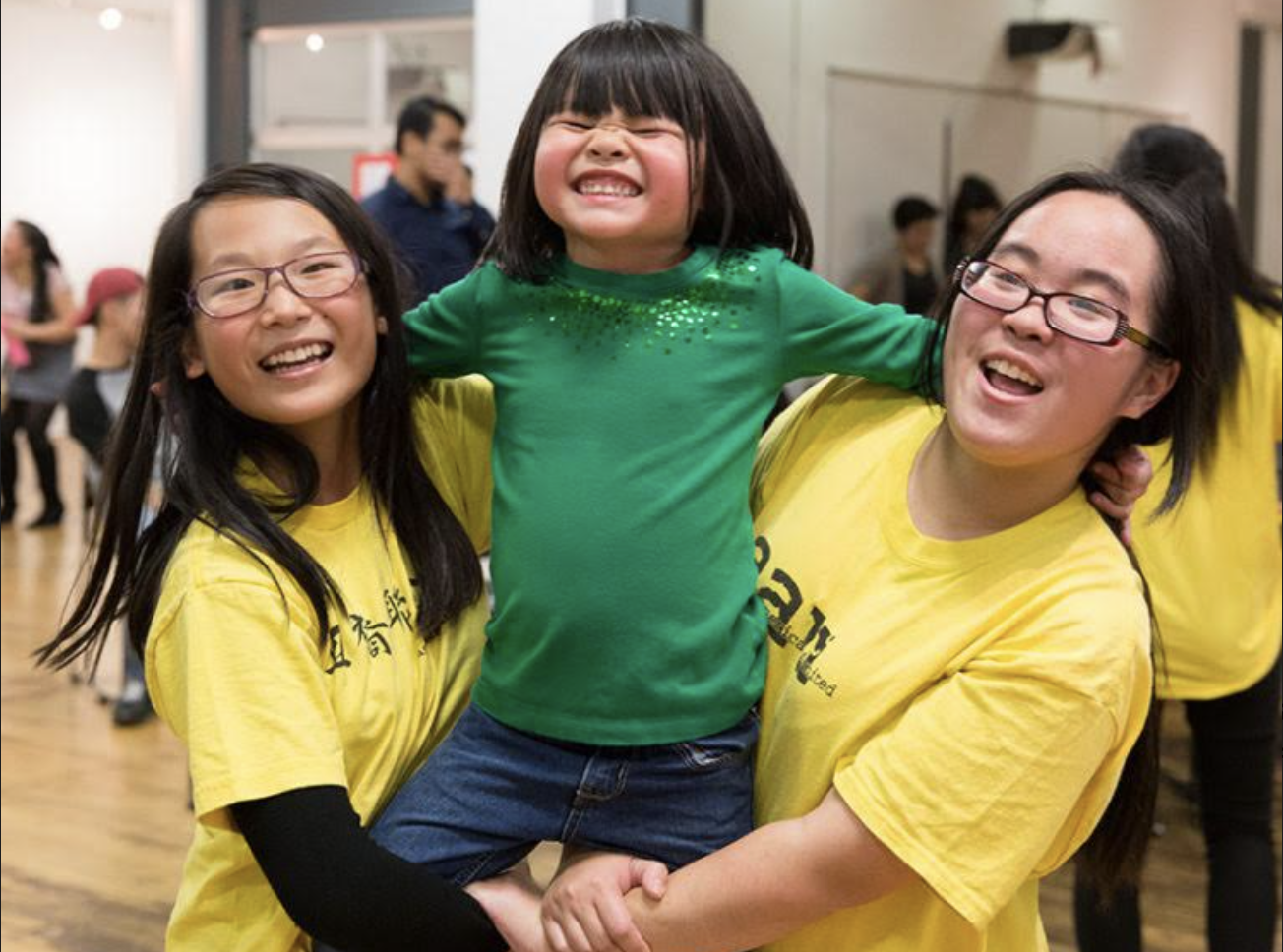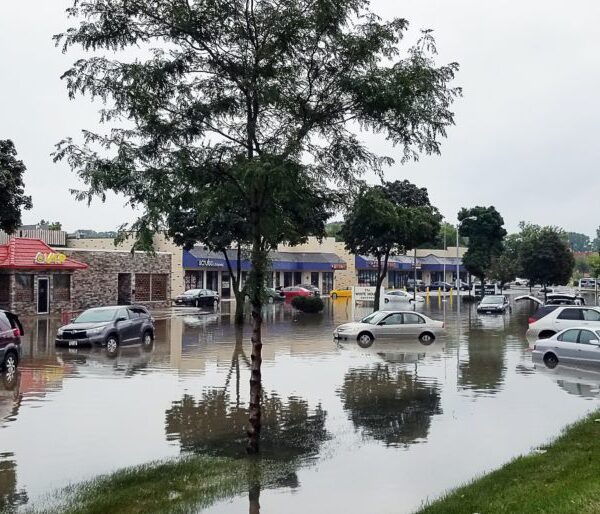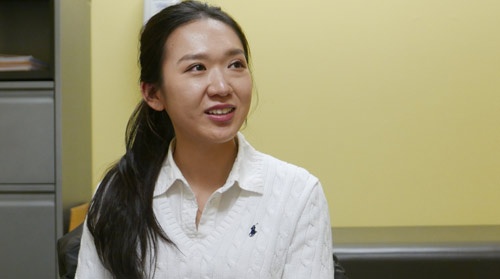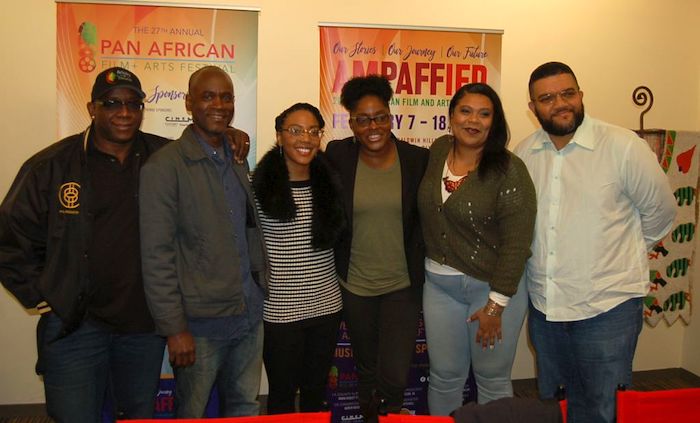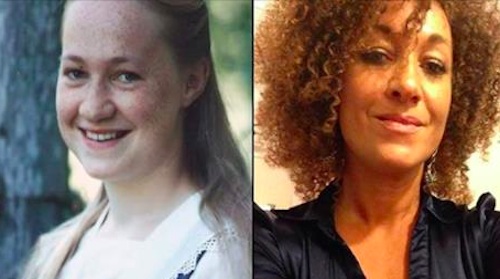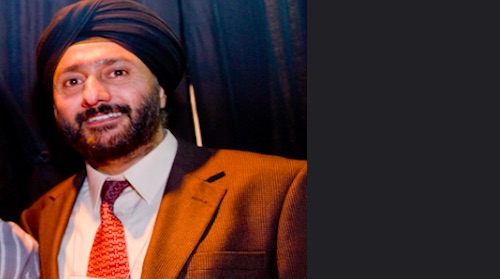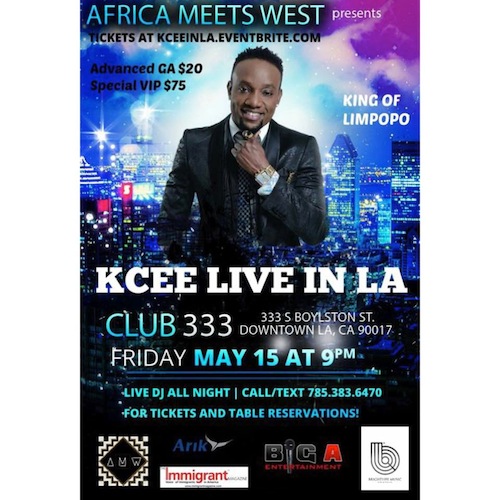Magazine, The Immigrant Experience
The term “caregiver” typically conjures images of individuals who provide support and assistance to those in need. However, this EMS briefing aims to broaden this definition to encompass those individuals and organizations that care for entire communities. We will delve into how these caregivers are challenging established norms, reshaping problematic narratives within their communities, and harnessing the power of art to amplify the collective voice of Asian American, Pacific Islander, and Native Hawaiian communities.
In today’s world, it’s vital to question what it means to be a caregiver in a community context. This discussion has never been more important, given the rising xenophobia and persisting stereotypes that continue to harm entire populations. It’s crucial to explore how caregiving within these communities shapes our understanding of various societal challenges and potential solutions. Moreover, we must consider the complex nature of this work, its practice across different cultures, and the profound impact it has on society as a whole.
An EMS briefing featured a lineup of dedicated speakers who have made significant contributions to community caregiving and the arts:
- Kalani Tonga-Tukuafu: Director of Pasifika Enriching Arts of Utah (PEAU), the arts and culture division of PIK2AR.
- Neeta Patel: Interim Executive Director of Asian Americans United.
- Benny Lai: Executive Manager of Communications and Events at the National Asian Pacific Center on Aging.
- Dianara Rivera: Operations and Fundraising Manager of AARW, a passionate advocate for Asian American communities.
- Jessica Eckerstorfer: Co-Executive Director of The SEAD Project, an organization committed to community empowerment through art.
- Insights from Susie Felch, CEO of Pacific Island Knowledge to Action Resources (PIK2AR): Susie Felch emphasized the importance of recognizing the often unrecognized caregivers within Pacific Islander communities. Key findings from their ongoing survey of caregivers include:
A significant portion of surveyed caregivers have been in their roles for over five years.
A staggering 67% of these caregivers have received no formal training.
Only 26% have the support they need to fulfill their caregiving roles.
Caregivers come from diverse age ranges, with some as young as 18 and others over 55, with a significant portion in the 35 to 45 age range.
PIK2AR’s project involves sharing the stories of these caregivers through a portrait series and an art exhibit titled “Telling Our Own Stories.” This initiative aims to humanize Pacific Islanders, challenging stereotypes and offering the public a more nuanced understanding of Pacific Islander experiences. The exhibit will feature art from up-and-coming Pacific Islander artists and offer a platform for caregivers and community members to share their experiences. This event is designed to foster a deeper connection between the community and Pacific Islander culture.
This EMS briefing shed light on the often uncelebrated role of community caregivers and how artists and activists are using their creativity to uplift AAPI narratives. By challenging established norms and stereotypes, these dedicated individuals and organizations are not only transforming their communities but also contributing to a broader understanding of the diverse cultures within the AAPI community. Their efforts are crucial in countering xenophobia and fostering unity and empathy within our society.
Susie Felch, in collaboration with Suzy, took a proactive approach to understanding the impact of xenophobia on individuals within the Pictar community. They conducted interviews to gain an insider’s perspective. The key objectives of these interviews were to:
- Explore how xenophobia has affected individuals within Pictar.
- Identify ways to strengthen Pictar’s presence in the community.
- Create bridges between different communities within Utah Valley.
The interviews revealed strong recurring themes among key stakeholders:
- Creating a Culture of Inclusivity and Transparency: One of the prominent themes was the importance of fostering a culture of inclusivity and transparency within the communities. Building strong relationships within Pictar and with the broader community was seen as vital.
- Diverse Identities Beyond Stereotypes: Pacific Islanders are often associated with excellence in athletics, entertainment, and culinary arts. However, it’s essential to recognize that Pacific Islanders encompass a far broader range of identities and talents beyond these stereotypes. Efforts are underway to deconstruct these limiting ideologies.
To address these issues, Susie and Suzy are organizing a media luncheon aimed at collaboration and bridge-building. This event aims to bring together the community and media to challenge existing narratives, collaborate on changing perceptions, and collectively work towards a better future for AAPI communities.
Additionally, they have initiated a survey for media professionals to gather data on narrative change in the media. This survey will help understand whether biases influence the way stories about Asian American Pacific Islanders are reported and perceived. The data collected from the survey will be shared during the media luncheon to promote a more informed and inclusive media landscape.
In summary, Susie and Suzy’s project is an essential step in addressing xenophobia and stereotypes by encouraging collaboration, fostering inclusivity, and reshaping the narrative surrounding AAPI communities. Their efforts are not only commendable but also vital for building a more diverse, inclusive, and empathetic society.
Neeta Patel, Interim Executive Director, Asian Americans United:
Neeta Patel, serving as the Interim Executive Director of Asian Americans United, is an inspirational leader with a deep-rooted commitment to preserving and protecting Philadelphia’s vibrant Chinatown. With an impressive 38-year history, Asian Americans United stands as a formidable grassroots community organization in the heart of Philadelphia.
Neeta Patel’s dedication is prominently reflected in the organization’s ongoing project, which tells a powerful story of community care entwined with a determined fight. This project centers on the preservation and safeguarding of an irreplaceable home and cultural treasure – Philadelphia’s Chinatown.
In Neeta’s words, the project unveils a narrative that extends beyond the physical space; it explores the profound connection between land, culture, and the troubling use of money to manipulate government officials to serve the interests of the super-wealthy.
The heart of this story is an unexpected development announcement by three billionaire real estate developers who intend to build an arena in the heart of Chinatown. This decision threatens a 150-year-old cultural gem, one of the oldest surviving historical Chinatowns in the United States. Neeta emphasizes that this announcement came seemingly out of nowhere, thrusting the community into action.
In response to this peril, Asian Americans United, under Neeta Patel’s leadership, has managed to form a formidable movement and an intergenerational coalition. Their mission is to demonstrate how small, low-income, non-English-speaking community members can unite with allies from diverse backgrounds. Together, they create a formidable front line, fighting not only to preserve their culture but also to push back against a displacement-for-profit model that plagues communities across the nation and around the world.
What’s truly at stake is the very existence of their community. Chinatowns across the country have been threatened and erased by large-scale development projects, and the continued existence of Philadelphia’s Chinatown is likewise under threat. This struggle represents the heart of the community, not just for Asian Americans and Pacific Islanders in Philadelphia but for those beyond the city’s borders.
Neeta Patel articulates that this is not a battle confined to Chinatown alone; it is a collective struggle against the commodification of their lives by a development model that prioritizes profits over people. Their narrative seeks to challenge this model by emphasizing the intrinsic value of communities.
The impact extends beyond the local community, affecting an entire regional community. It’s about their home, their place for living, thriving, worshipping, celebrating, and coming together. Neeta highlights that this is a battle faced by other communities combating gentrification and commodification throughout the city.
Their project involves telling stories that reflect the essence of their community, emphasizing the importance of people and communities. Neeta’s leadership stands as a testament to the power of unity in the face of development driven solely by profit motives.
Looking ahead, Neeta Patel emphasizes that their campaign and storytelling project have been ongoing for a year, but their fight is far from over. They are committed to telling more stories and battling the false narratives perpetuated by developers and city officials attempting to erase their community.
This inspiring journey involves people of all ages, languages, and backgrounds, uniting to preserve their culture and community. Neeta Patel’s leadership embodies resilience and the power of storytelling in the face of adversity.
Benny Lai represents the National Asian Pacific Center on Aging (NAPCA), headquartered in Seattle, with his base of operations in the LA Chantile office. NAPCA is dedicated to providing assistance to Asian and Pacific Islander seniors in the United States. Their services encompass a wide range of offerings, from healthcare to employment support.
Benny takes this opportunity to underscore the importance of delving deeper into the subject of caregiving within Asian communities. Starting in 2023, NAPCA embarked on a significant initiative in collaboration with the renowned director and producer, Rea Tajiri Morimoto.
Their joint effort resulted in the creation of four “We Care” episodes, each lasting approximately 14 to 15 minutes. These episodes provide a snapshot of what full-time caregiving for a family member truly entails in real life.
The first episode, produced in January of the same year, focuses on the Shaheen family, a South Asian family residing in Cedar Park, Texas. The caregiving journey, as depicted in this episode, showcases the everyday challenges and experiences faced by caregivers in an intimate and realistic manner.
Benny introduces the screening of a one-minute excerpt from the episode, allowing attendees to catch a glimpse of the compelling narrative that unfolds in “We Care.” The video showcases the dedication and sacrifices of caregivers as they provide 24/7 support to their loved ones, shedding light on the demanding nature of caregiving and the support systems that come into play.
This project, aimed at altering the narrative surrounding caregiving, is a testament to NAPCA’s commitment to highlighting the vital role of caregivers within the Asian and Pacific Islander communities. It serves as a platform to foster empathy and understanding of the challenges these caregivers face. By offering these intimate glimpses into the lives of caregivers, NAPCA hopes to change the narrative and garner support for those undertaking the often underappreciated role of caregiving.
Dianara Rivera, who uses she/her pronouns, is a passionate advocate and member of the Asian American Resource Workshop (AARW). She is a queer, mixed-race Pilipinx Puerto Rican woman committed to empowering Asian American communities to build community power. Dianara currently serves as the Operations and Fundraising Manager at AARW, focusing on supporting the organization’s sustainability and internal operations. AARW is based in Boston, Massachusetts, and it primarily addresses issues related to housing and immigration. However, they are engaged in various activities that extend beyond these key areas.
The Project – “A Love Letter to the QC API Community”:
AARW undertook a project titled “A Love Letter to the QC API Community.” The project emerged from the need to create safe spaces, particularly during a period marked by political attacks on the queer and trans community. It is crucial to establish spaces for collective care and empowerment, as witnessed in movements like the uprising against police violence.
The project’s main objective was to address the lack of representation and narratives related to caregiving within the most marginalized communities in mainstream media. Dianara and AARW aimed to highlight the political nature of collective care by capturing and sharing stories of care from the Queer and Trans Asian, South Asian, Southeast Asian, and Pacific Islander (QC API) communities.
To achieve this, they organized human faces and storytelling workshops within their local community. These workshops served as platforms for participants to explore and express the profound importance of caregiving within the community. Participants’ narratives focused on their experiences in caregiving, emphasizing the political implications of asking for help, sharing stories, and supporting one another.
Dianara illustrated the workshops conducted, sharing examples of the narratives they collected, and the transformative impact they had on the participants. The workshops covered a range of creative methods, such as writing, photography, and open discussions, where community members explored how caregiving feels in their bodies and spirits.
In each workshop, participants delved into their own barriers to asking for help and explored possible antidotes, fostering a sense of community and mutual support. The narratives collected provided insight into political themes, including challenges related to a capitalist mindset, transactional expectations, isolation, and the influence of Asian immigrant family dynamics.
Looking ahead, AARW plans to archive these narratives online and interview the artist practitioners involved in creating healing narrative gathering spaces. An event in the following year will celebrate the project’s success, featuring performances, discussions, and shared stories to commemorate the power of narratives in community building and healing.
About Jessica Eckerstorfer and The SEAD Project:
Jessica Eckerstorfer serves as the Co-Executive Director of The SEAD Project, an organization dedicated to cultural preservation, storytelling, and art. Located in the Twin Cities, they focus on the stories of diaspora members stemming from the Vietnam War. Minnesota is home to over 100,000 such diaspora members due to the historical sponsorship of many families by Lutheran churches during the war. Within these communities, Khmer is the largest population, followed by Mong and Lao.
The “Knowing Our Joy” Collection:
The SEAD Project’s project, titled “Knowing Our Joy,” collects and preserves the stories of elder members of the diaspora community. The primary goal is to allow people to see the humanity of these diaspora members. The collection is a celebration of their stories and experiences, providing an opportunity to connect with their homelands, preserve traditions, and learn from the past. This project celebrates the voices of the community’s elders and recognizes that they are more than just their refugee stories.
The project also includes a new collection called “Planting Seeds: Knowing Our Joy,” which honors the family members who have had a significant impact on the community. At the book launch, these voices will be celebrated and shared.
The SEAD Project focuses on storytelling, collection, and preservation, and the aim is to create a narrative change within the community.
Storytelling and Artistic Expression:
The project offers a creative and holistic healing atmosphere for elders through the power of storytelling and artistic expression. They use a memory mapping process that allows individuals to reflect on and document moments of joy and happiness within the context of historical events, including those related to the pandemic and other significant experiences.
Younger family members were trained in story collection work and then used their training to bridge the gap between elders and the project’s goals. By doing so, they built trust and facilitated intergenerational collaboration.
The project also involved 20 emerging artists from heritage backgrounds who illustrated the collected stories, further amplifying the voices and representation of the community.
Example Story Excerpt: “The Girl with the Chicken”
Jessica shared an excerpt from one of the stories collected during the project. This particular story, “The Girl with the Chicken Lives in a Castle by Home,” highlights a memory from her maternal grandmother’s past. It is a simple tale, but it encapsulates moments of joy, celebration, and tradition within the community.
Book Launch and Availability:
The SEAD Project will host a book launch event on December 2nd in the Twin Cities. The collection will include photographs of the family members, the stories translated into both English and the heritage language, and illustrations that complement the narratives. The collection will also be made available to anyone interested in exploring these stories.
#CommunityCare #AAPIArtists #NarrativeShift #Empowerment #CulturePreservation #Activism #VoicesMatter #Inclusivity #DiverseStories #XenophobiaCounter

